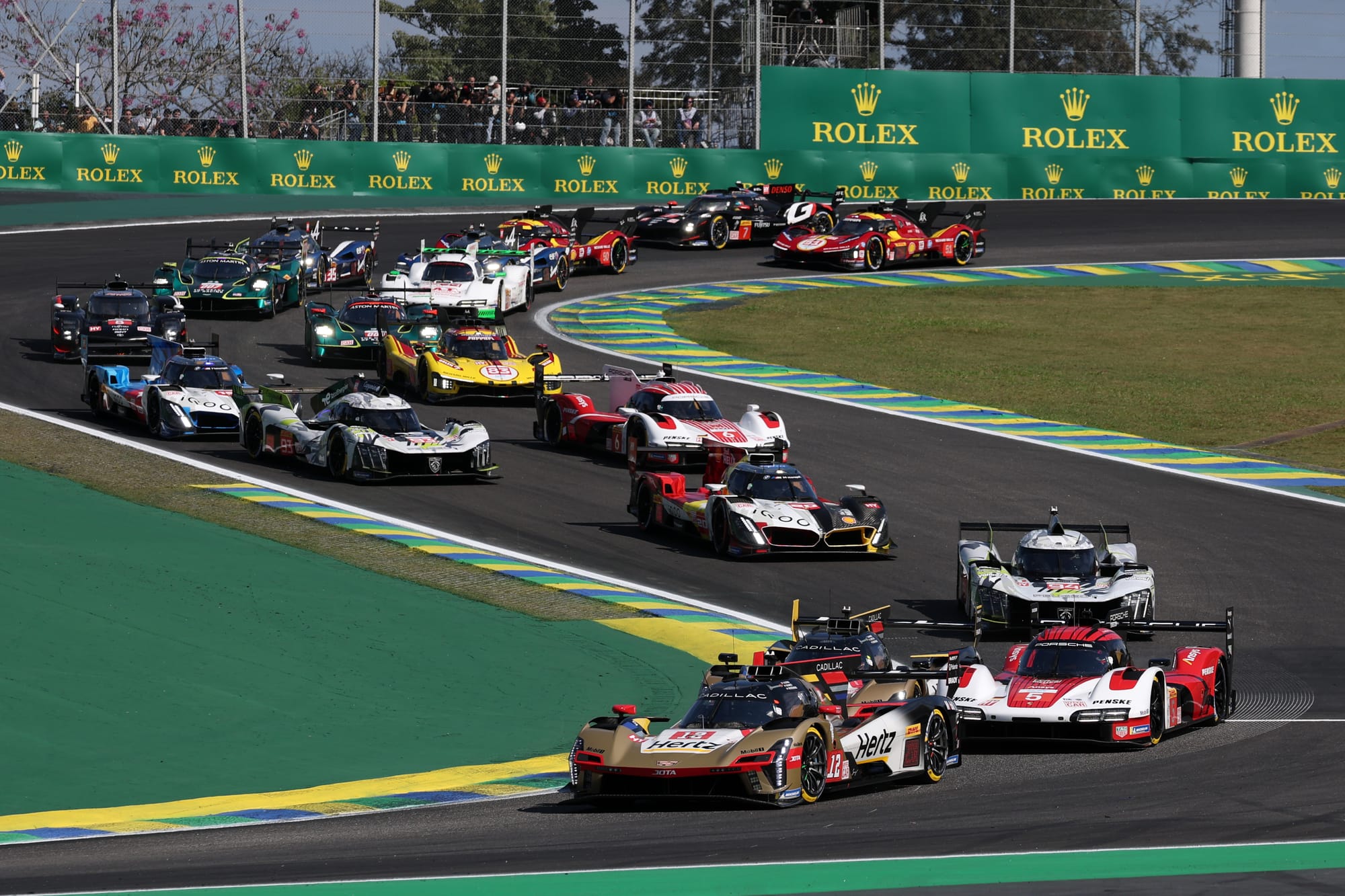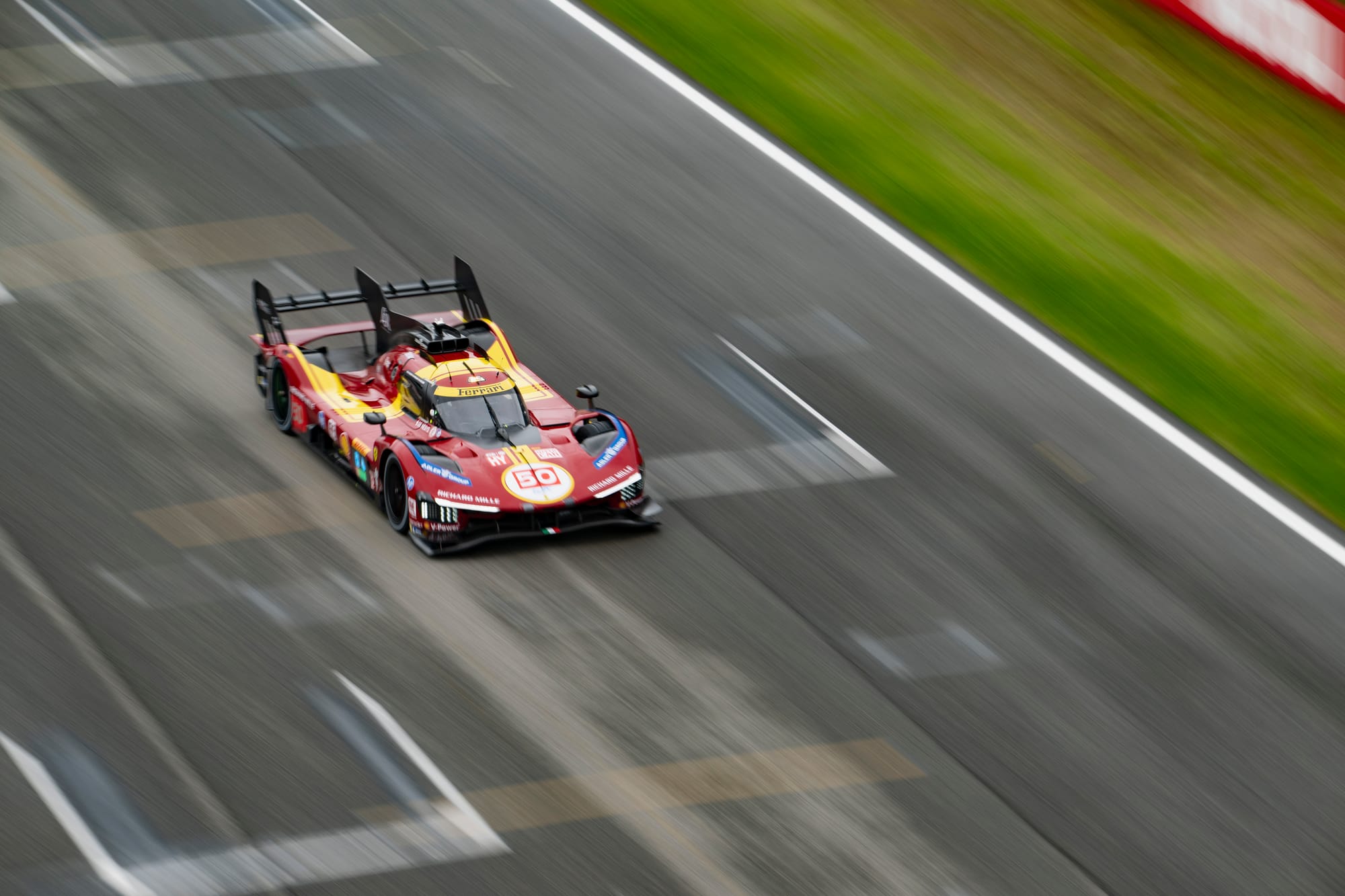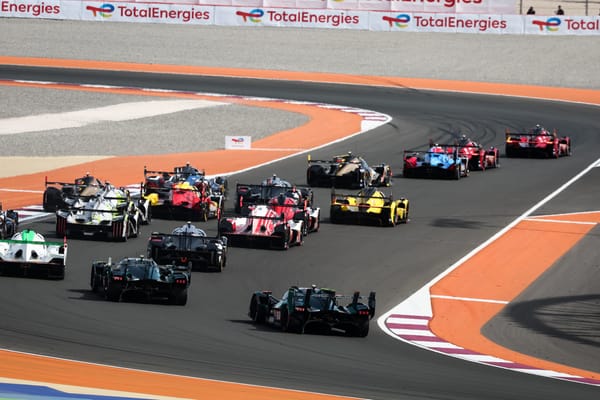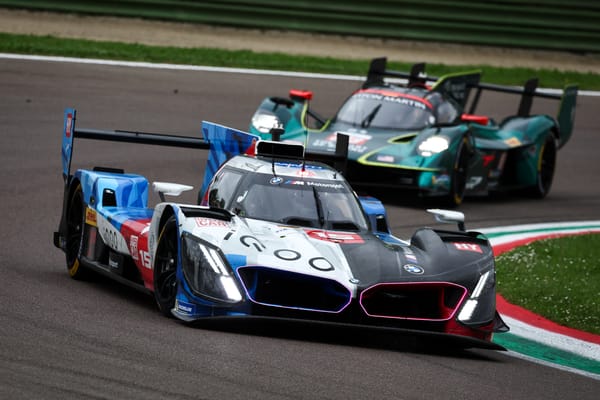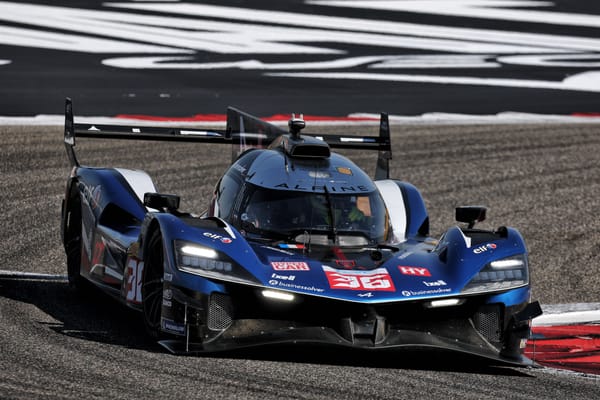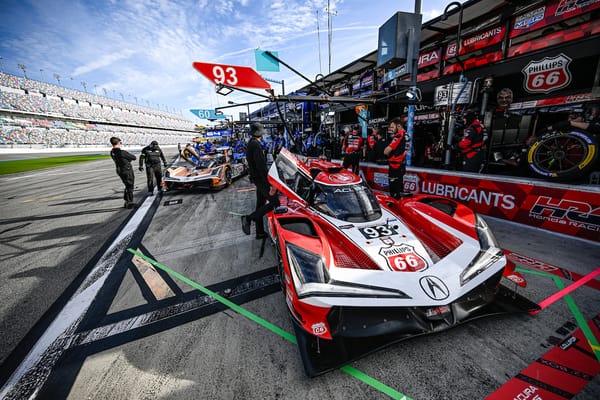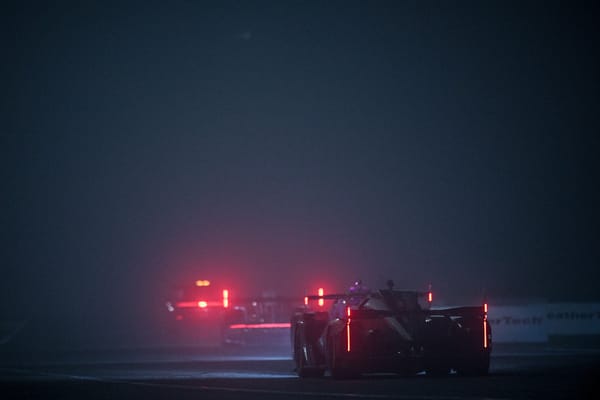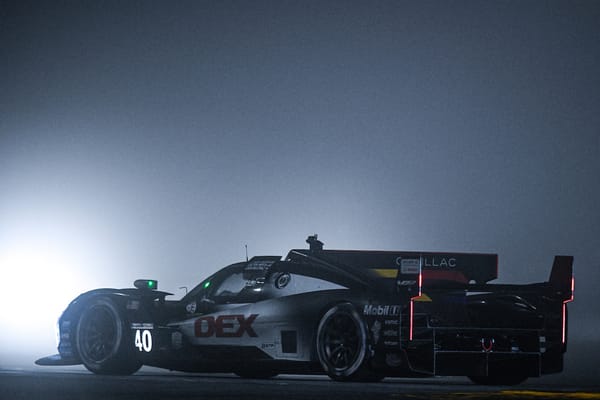Nobody wins from a WEC system that doesn't make sense
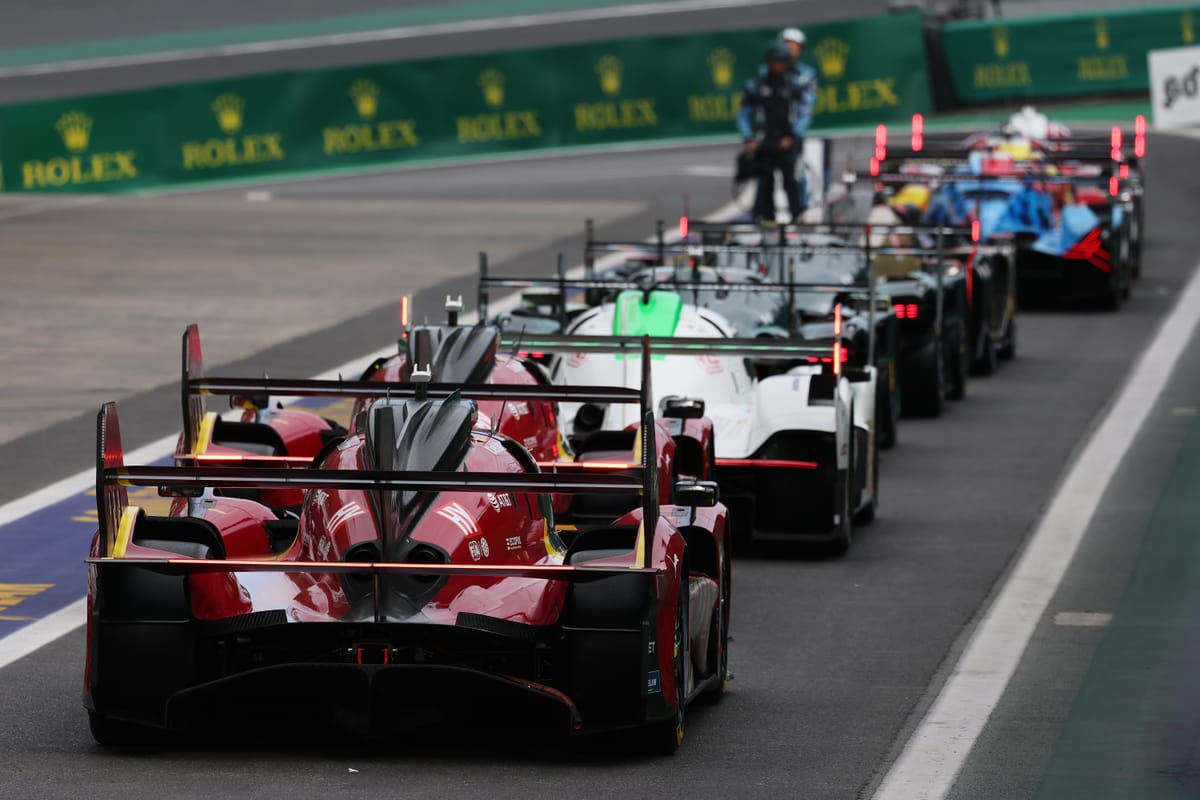
After the finish of the World Endurance Championship's São Paulo 6 Hours last Sunday, a member of the Alpine Endurance Team shared a remark that was as amusing as it was disheartening: "Back in March, we told ourselves that if we could fight with Ferrari and Toyota in the second half of the season, it would be a sign we'd done a good job."
In both qualifying and the race, the Alpine A424s were ahead of one or even both factory Toyotas and Ferraris.
What nobody could have predicted is that this would be for 15th on the grid and ninth at the finish line.
That one sentence sums up the 2025 season and the fog that currently surrounds the WEC, especially since last Sunday. The WEC boasts one of the greatest grids in motorsport history, across all world championships. But the show on track is far from what was expected.
BoP: An accepted but criticised system
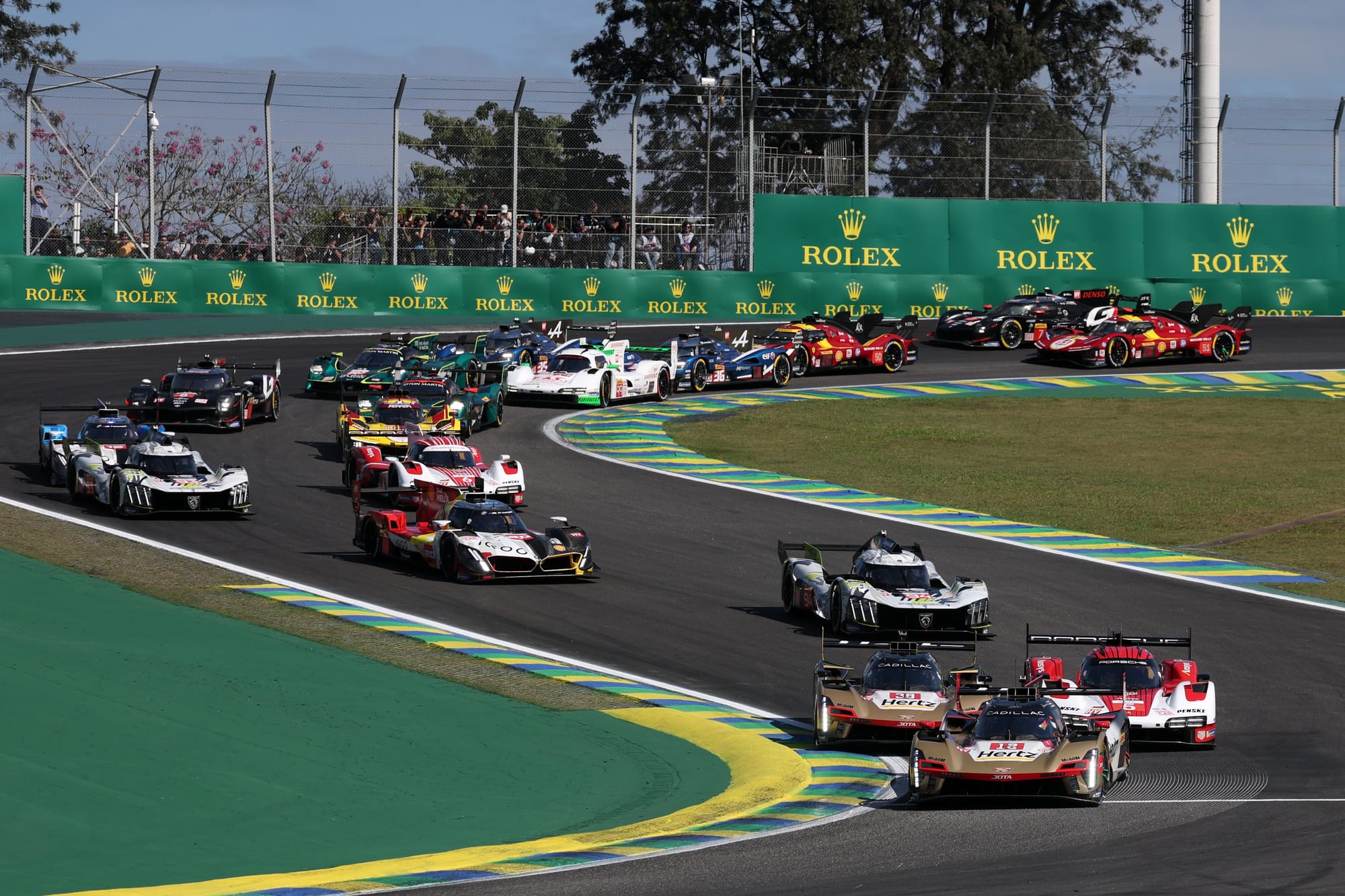
Balance of Performance as a concept goes against the fundamentals of motorsport. For newcomers, and to quote the FIA and WEC organiser the Automobile Club de l'Ouest directly, it is a series of technical adjustments, primarily affecting weight and power, that are designed to create a level playing field among cars of different design and architecture. BoP therefore maintains a similar level of performance between all cars, which reduces development costs significantly.
"The idea was to completely change the philosophy of the top class [compared to LMP1] and to design a new one taking into account all the different parameters of the moment," explained Marek Nawarecki, FIA circuit sport director, in 2023.
"One of them was cost, which was very high. The adoption of BoP allows us to have less expensive cars. It's indeed one of the only ways to slow down the development race, as manufacturers know their cars will be balanced against each other."
We won't go into the many details of this complex system, which we've explained before and which has been modified multiple times this season. Even though we dislike the expression, BoP is a necessary evil. It's what allows the WEC to feature eight manufacturers in the Hypercar class in 2025, and potentially 12 in 2027.
"And we all accepted this principle, with more or less enthusiasm," admits Toyota Gazoo Racing technical director David Floury. "What we’re questioning now is the way it's being applied."
Does sport have to be fair?
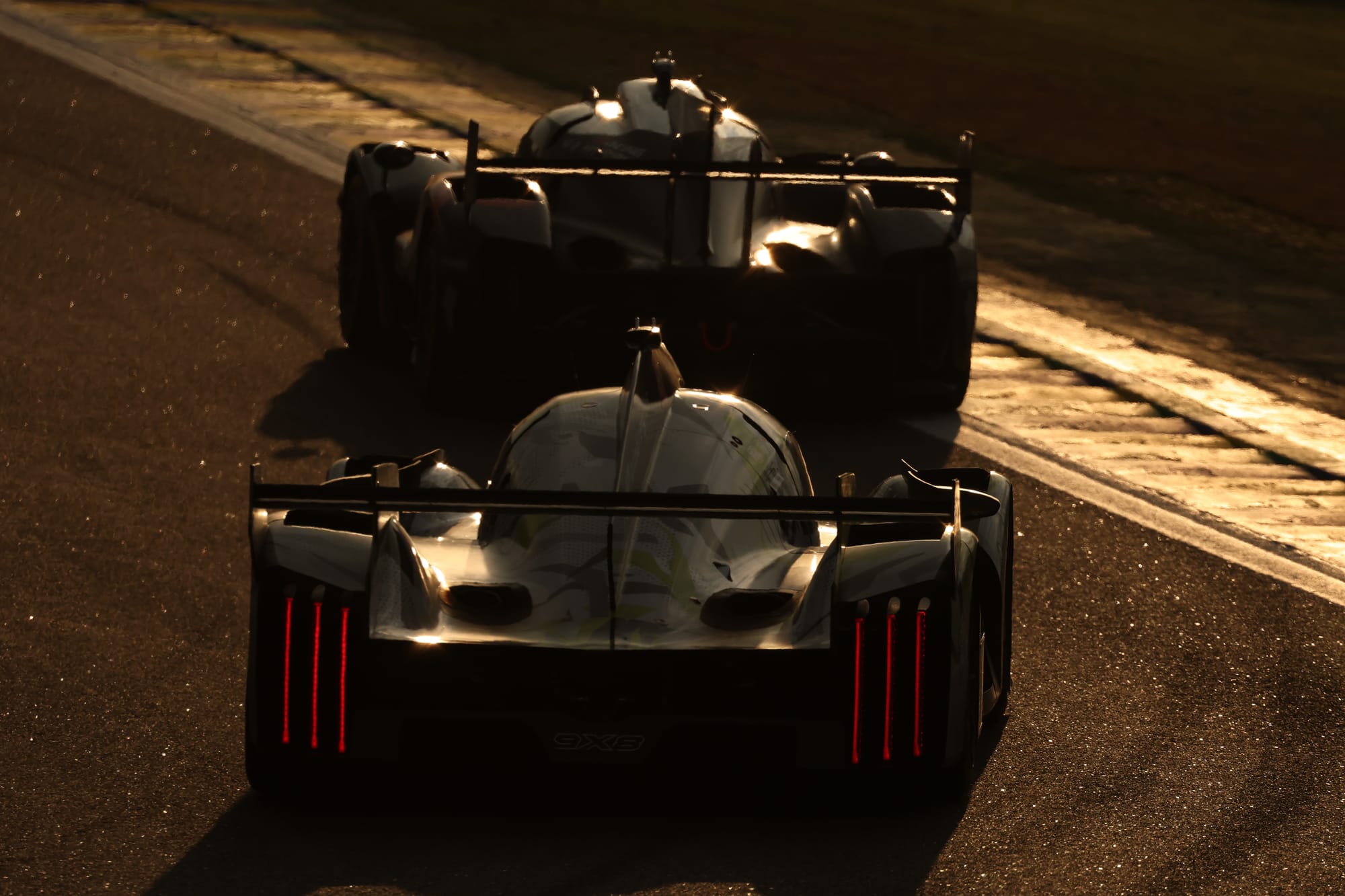
Can sport ever be fair? We're not all born with the same genetic advantages or financial means. But once registered, everyone must start on an equal footing, and the guiding principle should remain that the best wins, whatever cards they may hold.
To preserve interest in a discipline, governing bodies sometimes must intervene. Philosophies differ. In tennis, top-ranked players are 'protected' so that favourites meet in the final. In football, top teams are placed in 'Pot 1' for group draws to avoid early matchups.
Motorsport is different, as performance also depends on a machine. Sometimes, action is needed to curb dominance. Think of success ballast seen in the now-defunct World Touring Car Championship and still present in Super GT and GT3/LMGT3.
There are also partly reversed grids in single-seater sprint races, or road-sweeping rules in the World Rally Championship, where the championship leader must go first and clear the stage for others on the first leg of rallies. All of these have sparked controversy, but probably none as much as BoP.
A turning point?
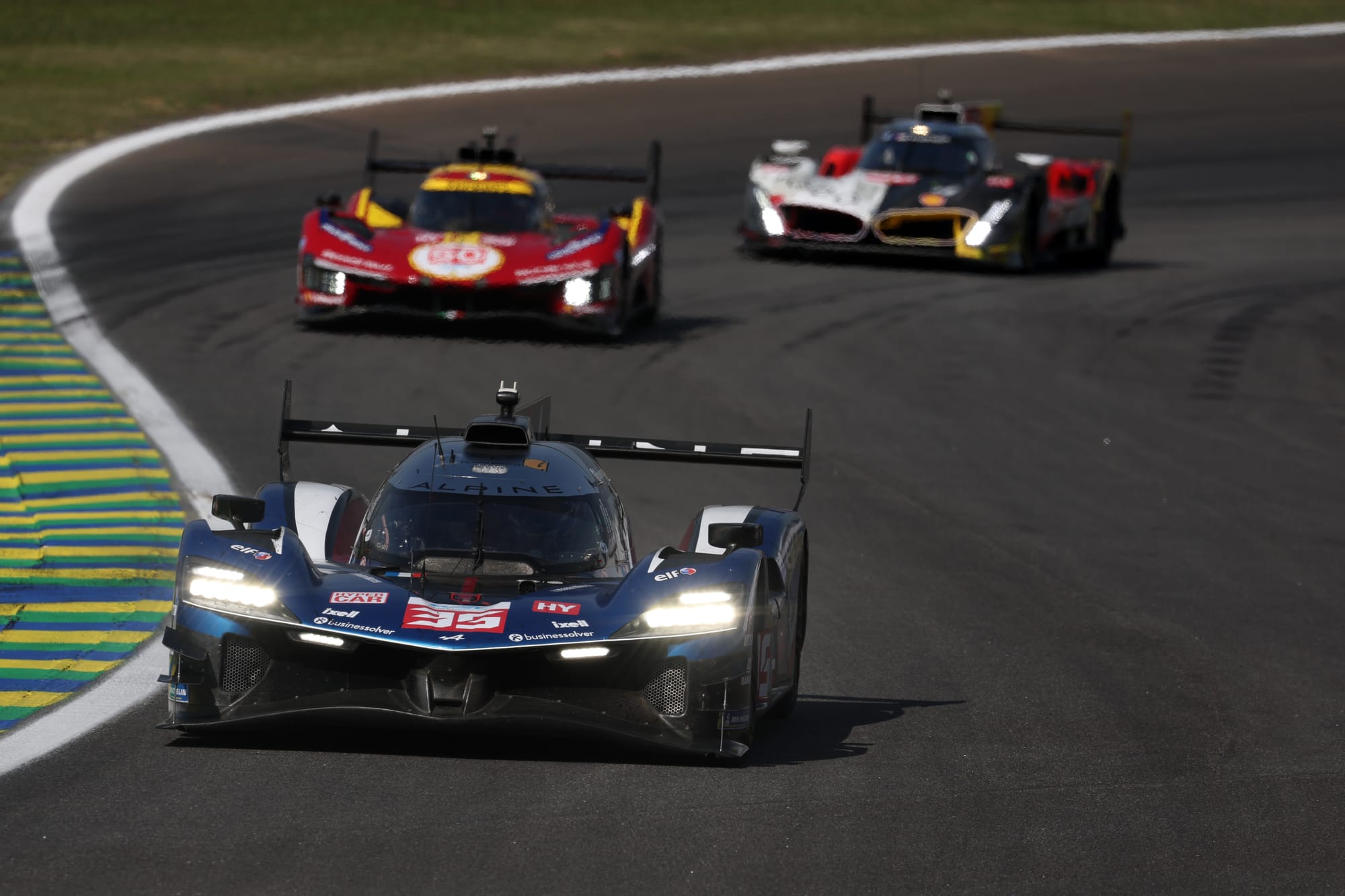
Let's not pretend: Sunday's race in the WEC's top class was utterly dull. The race-winning #12 Cadillac only lost its lead due to a drivethrough penalty and pitstops.
Watching one car dominate is acceptable in a championship not governed by BoP, where the best team is rewarded, as McLaren is doing in Formula 1, for instance. But not in a BoP-based series where those measures are supposed to tighten the field.
For a while, one could argue that casual fans, probably the majority of the audience, were unaware of BoP and could enjoy the show without knowing its ins and outs. Even purists, once they got over its implementation, admitted it had its advantages.
But last Sunday, no one walked away from Interlagos satisfied. On both mainstream and specialist websites, comments were unanimous in condemning the event as a farce. The dismal show couldn't even be salvaged by the upside-down running order, entirely explainable by three letters: BoP, whose impact on results is too much, way too much.
Is it serious, Doctor?
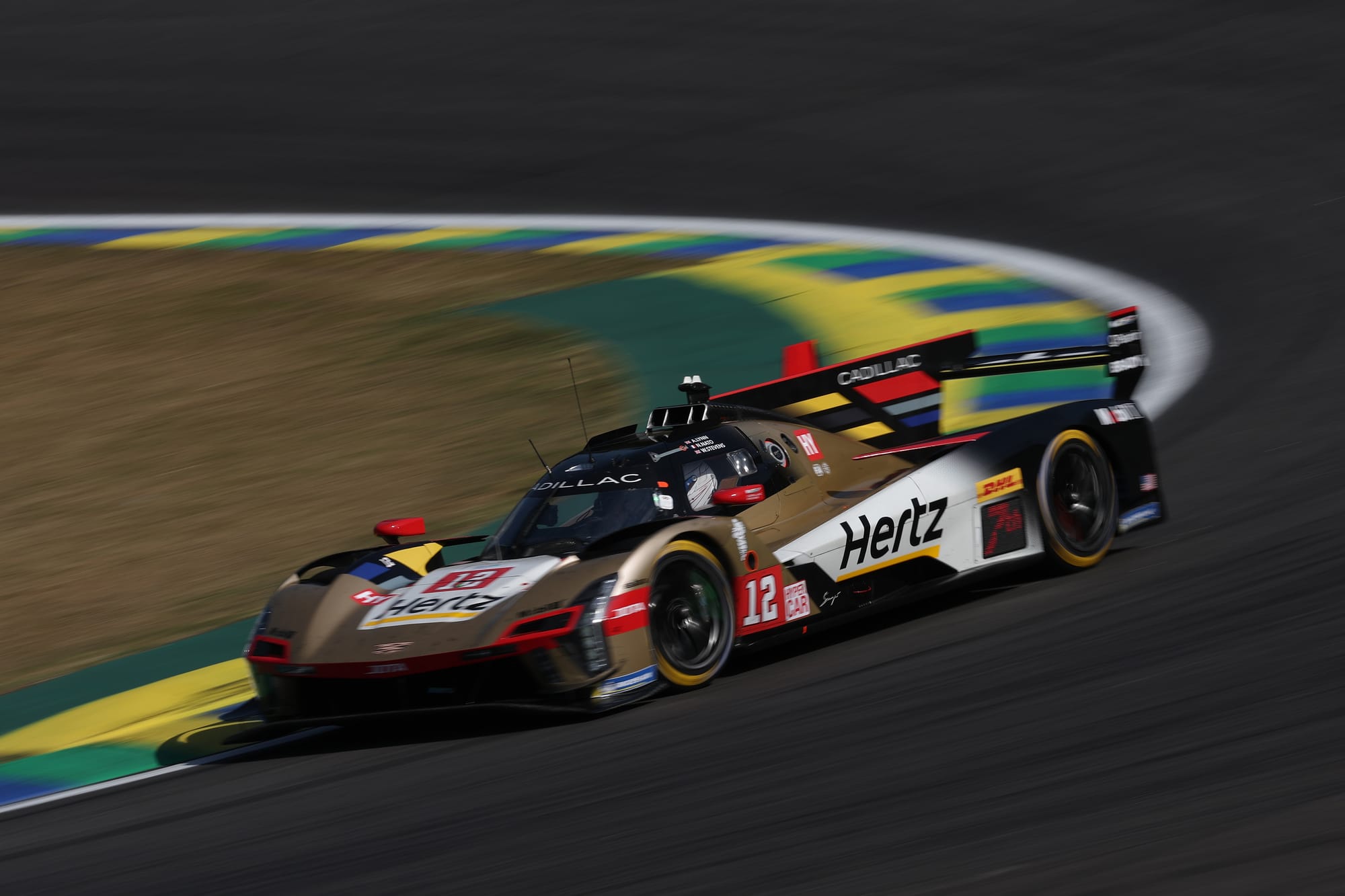
First and foremost, we must regret that this endless debate has overshadowed the Cadillac Team Jota's victory. The Anglo-American pairing already delivered a brilliant performance at the Le Mans 24 Hours but couldn't fight for the podium due to the event-specific BoP that deprived its cars of top speed.
In Brazil, BoP helped Cadillac, largely because the manufacturer compensation formula was changed for the second time this season. Unlike at Spa in May, when the best two results of the last three races were considered, at Interlagos only the two most recent races (excluding Le Mans) counted this time. Good news given how quick the V-Series.Rs were in Qatar at the season opener.
Let's not forget that the same method partly enabled Ferrari's dominant start to 2025, as it underperformed in the last three rounds of 2024 - data from which was used to establish compensation for the first two races of the current season.
"Today, we can predict the hierarchy before the event," lamented Floury. "And I don't think that's good for the championship."
It's hard to disagree. The way manufacturer compensation is calculated had far too big an impact on performance levels. Just look at the completely shuffled - almost reversed - hierarchy at the São Paulo 6 Hours.
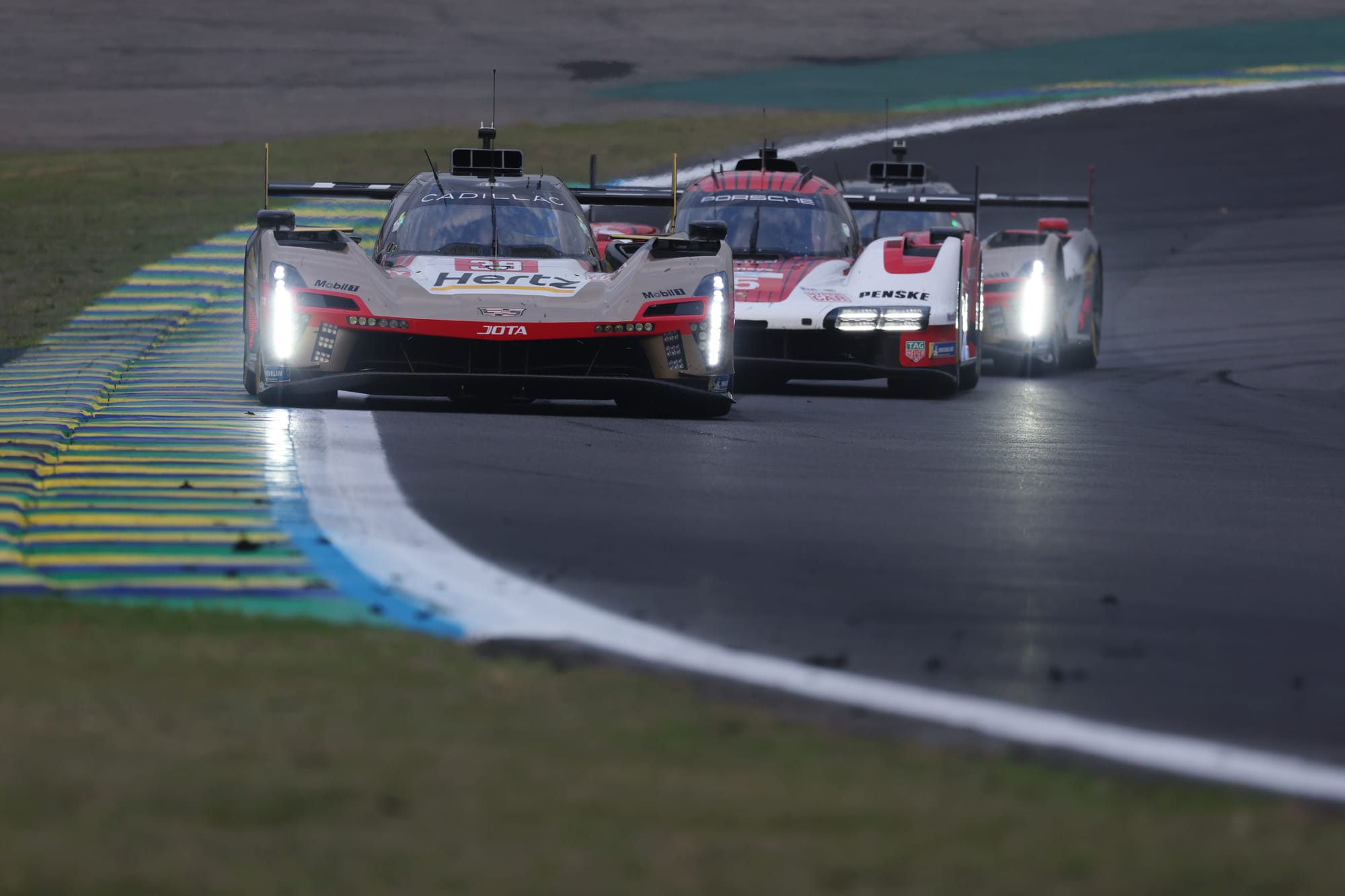
A Cadillac vs Porsche battle? Fine. But seeing the reigning world champion (Toyota GR010 Hybrid) and the Ferrari 499P - dominant in the season's first four races - get lapped after just a third of the race makes no sense. It casts a shadow on this FIA world championship and amounts to the worst possible advertisement.
While the regulation is said to be restrictive, we ended up in Brazil with gaps of 39kg and 40kW (54bhp) between two cars, an abyss in weight-to-power ratios! By relegating Ferrari and Toyota to supporting roles, excellence is being punished and the bar is being lowered. Shouldn't it be the opposite?
Adjusting parameters to ensure close racing is necessary; it's what enabled this golden era. But now, we're seeing wider gaps than before the introduction of this 100% convergence BoP which is in place this year.
"It was meant to bring the cars closer together, but it’s doing exactly the opposite," warned Floury.
And if there's no safety car? Then we witness a procession, like at Interlagos.
"The race didn't leave too many opportunities," said Peugeot Sport technical director Olivier Jansonnie. "It was a completely green race, without any safety car or VSC [virtual safety car]. So it was just the intrinsic pace of the car that made a difference."
And that intrinsic pace is clearly dictated by BoP.
Some argue that certain manufacturers are sandbagging, skewing the data. Maybe. But it's hard to see why Toyota or Ferrari would do that as one has nothing left to lose, the other nothing left to win, likely taking all titles barring disaster.
Even if that were true, try telling men's tennis world number one Jannik Sinner that an early exit in the Miami Open will give him a more favourable draw at Roland Garros, for the French Open, and see how that goes.
Whatever the reasons, the result is what matters. And the reality today is clear: the system doesn't work. The WEC is at a crossroads and must find a solution fast, because no one will accept the show seen in Brazil where BoP is the puppet master.
What the competitors think
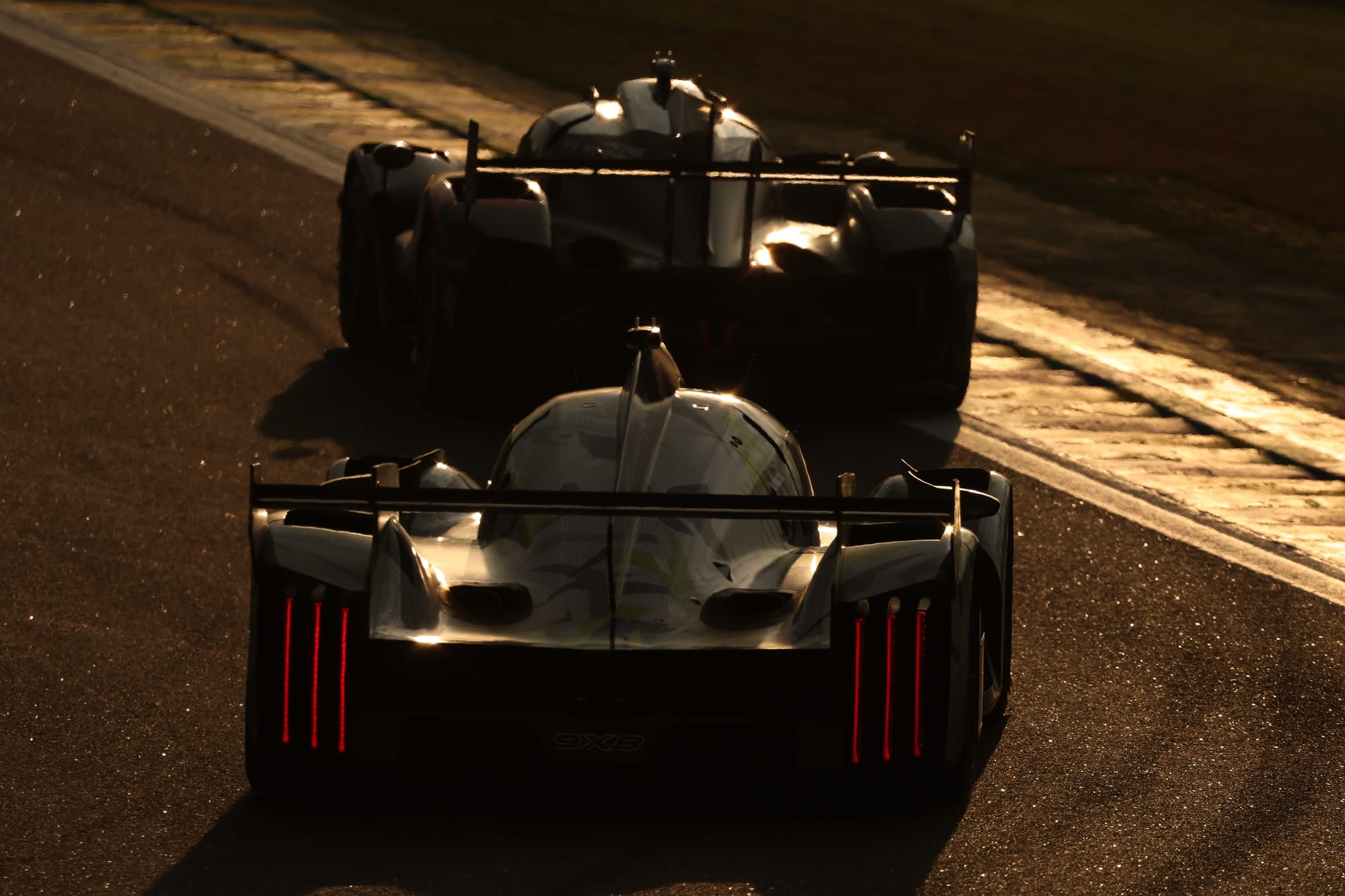
Everyone is walking on eggshells, as Article 6.2.1 of the WEC sporting regulations states that manufacturers, competitors, drivers and any persons or entities associated with their entries must not seek to influence the establishment of the BoP or comment on the process and/or the results, in particular through public statements, the media and social networks.
A gag order that only fuels scandal. But as races go by, the anger is growing. Some hint at the problem without talking about It-That-Must-Not-Be-Named. Such as BMW M Team WRT boss Vincent Vosse, who said last Sunday: "Fifth place for car #20 is the result of an almost flawless race by our team. That made us the 'best of the rest' here."
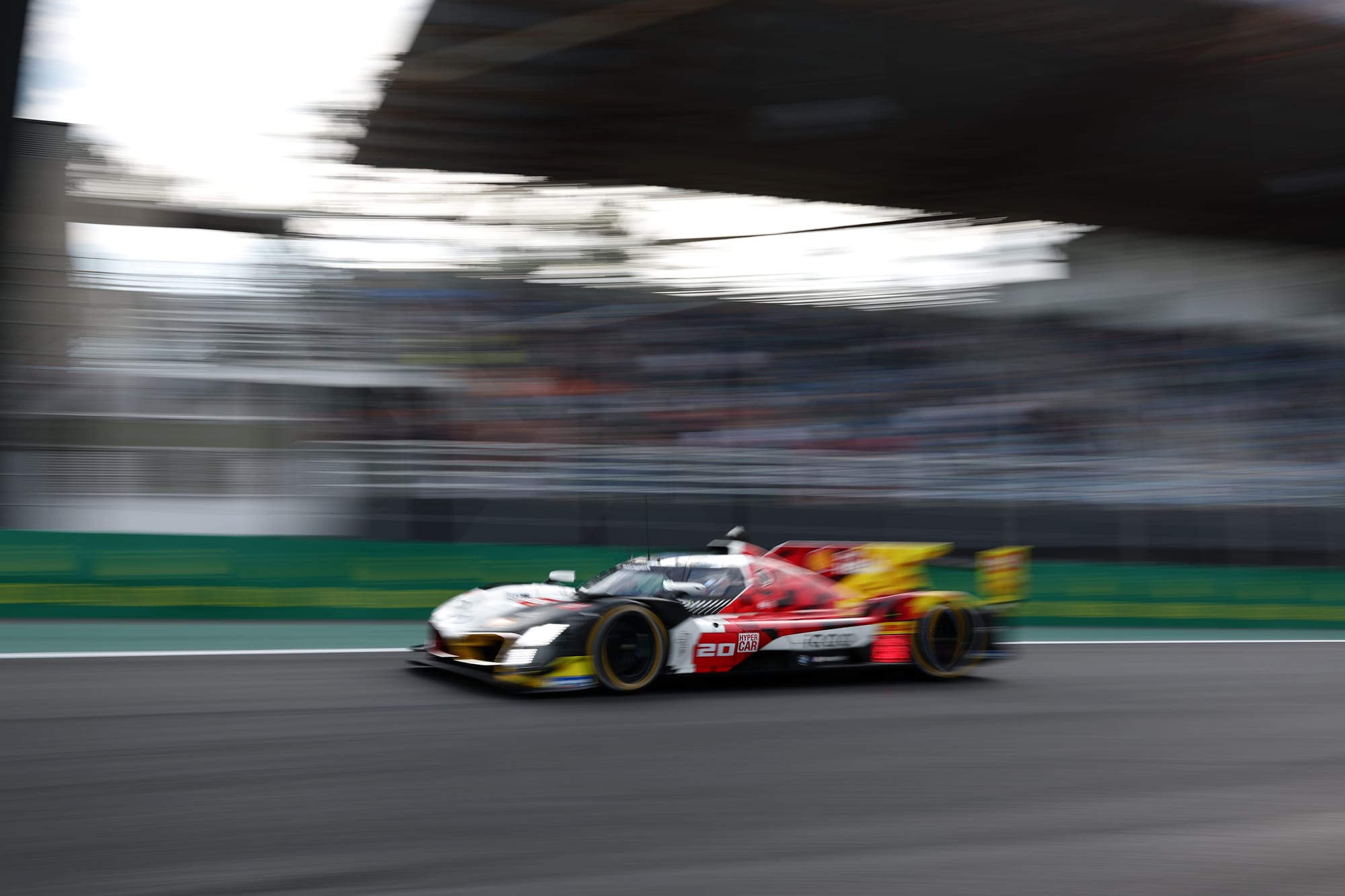
"The crews were consistent, and fully committed. Unfortunately, P10 and P12 don't reflect that effort," he added, this time referring to the LMGT3 BoP. "I'm proud of my team, but also sad, angry, and frustrated for everyone involved. Countless days, weeks, and even months are poured into simply making it to the grid. We fight with everything we have, just like every other team that shows up with the same goal."
We also remember what Porsche Motorsport vice president Thomas Laudenbach said after the Spa 6 Hours, in which the best Porsche 963 finished ninth: "I think there is a massive need for action outside of our organisation. The race speaks for itself."
Others, too frustrated to stay quiet, are speaking out. Explaining Alpine's disappointing Le Mans, Alpine vice president of motorsport Bruno Famin made no secret that it was "also due to a BoP factor that's undeniable".
But the most vocal manufacturer is, unsurprisingly, the one most penalised this season: Toyota. The GR010 is being strangled and still hasn't scored a podium in 2025.
"To give you an example, from the exit of the last corner until the start-finish line, we lose between five or six tenths compared to the best other cars," explained Floury at Interlagos. "Raceability? Forget about it. This is just trying to survive for six hours and go home. We've lost sight of what racing is all about. It has become far too artificial."
"It's not about whether we need to close the gaps between cars or not," he added. "That's accepted on our side, but the process is wrong. When you receive the table before the weekend, you already know what’s going to happen. And that should not be the case.
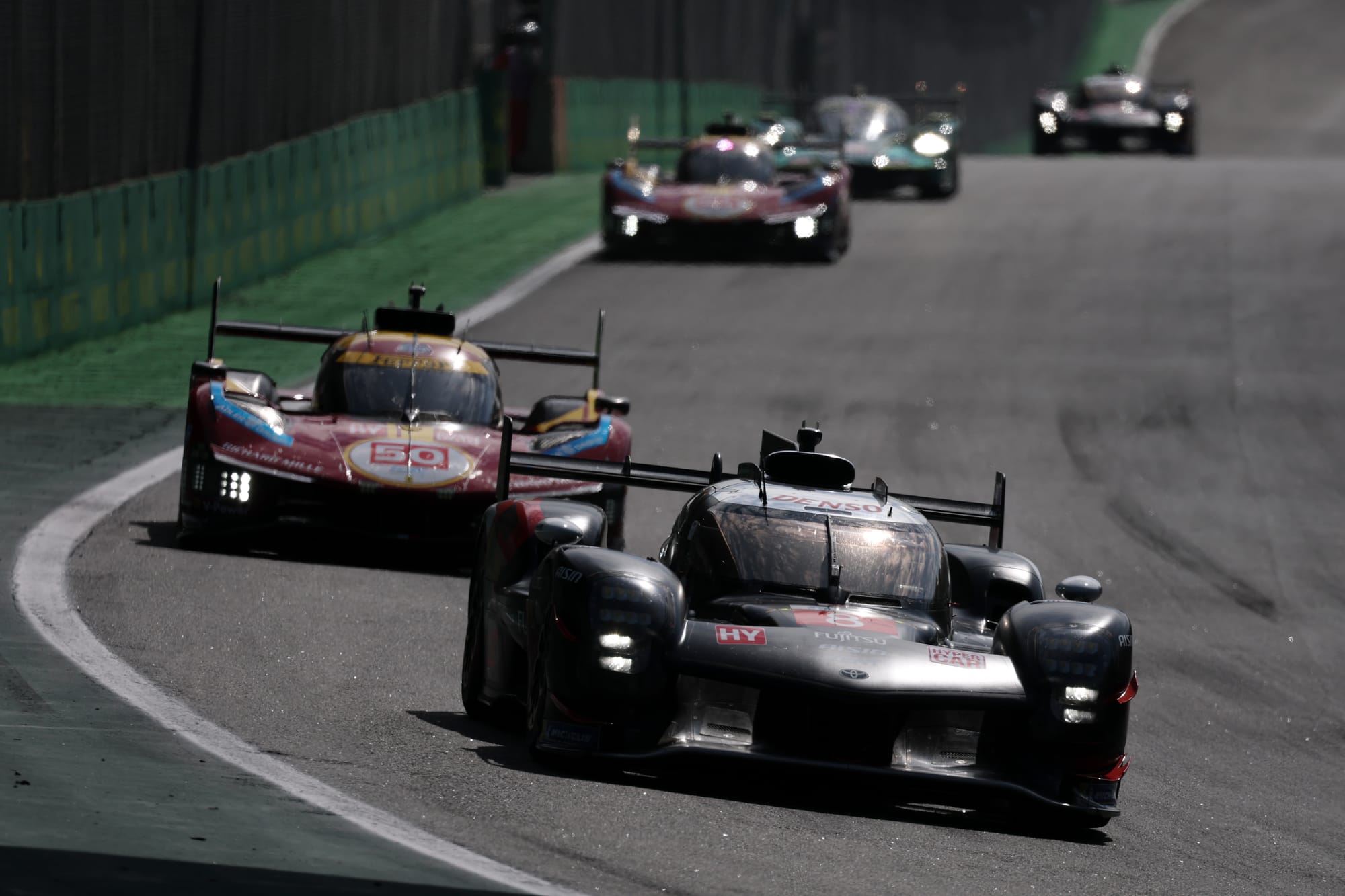
"Clearly, when Ferrari is at the same working point as us, they have similar pace. So the start of the season has been totally artificial."
"So collectively, as a group with the other manufacturers, the FIA and ACO, I think it is urgent that we reconsider what we race for and what we should target," Floury concluded. "Qatar, Imola, and Le Mans weren't especially interesting. What we've proposed this year is not good for the sport. We urgently need to find a solution, otherwise I'm sure there will be consequences."
We're a far cry from the intensity of the Audi-Peugeot or the Audi-Porsche-Toyota battles of the LMP1 era. The cast today is phenomenal, but the script and direction clearly need work.

